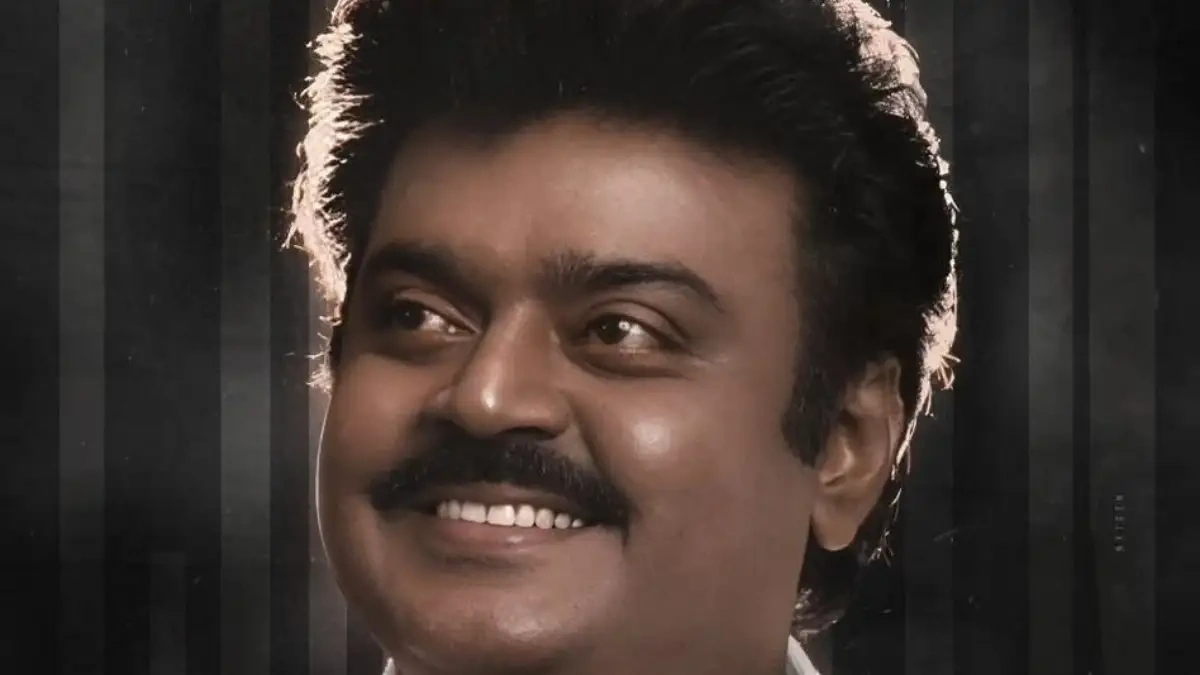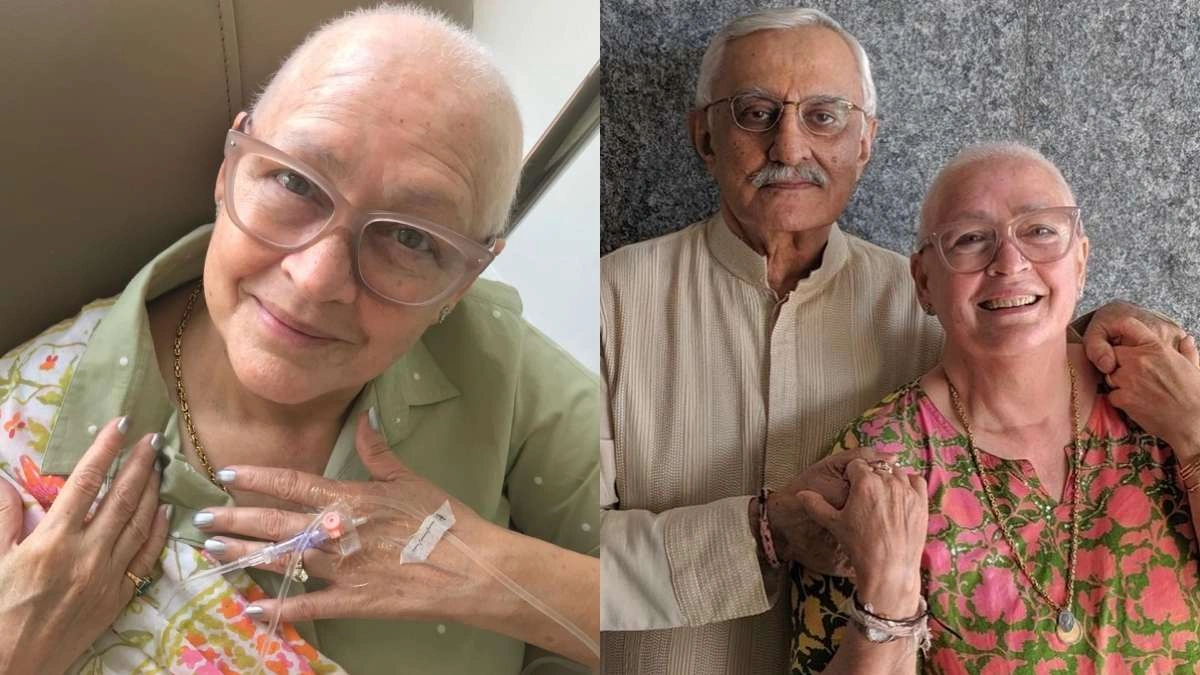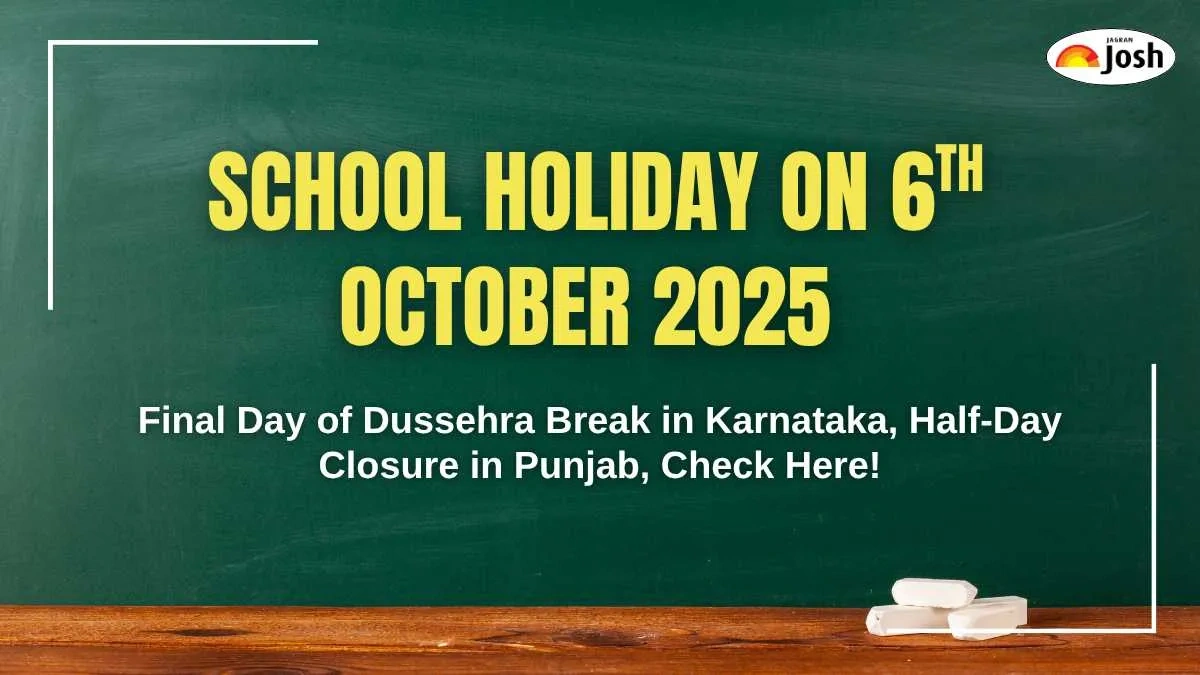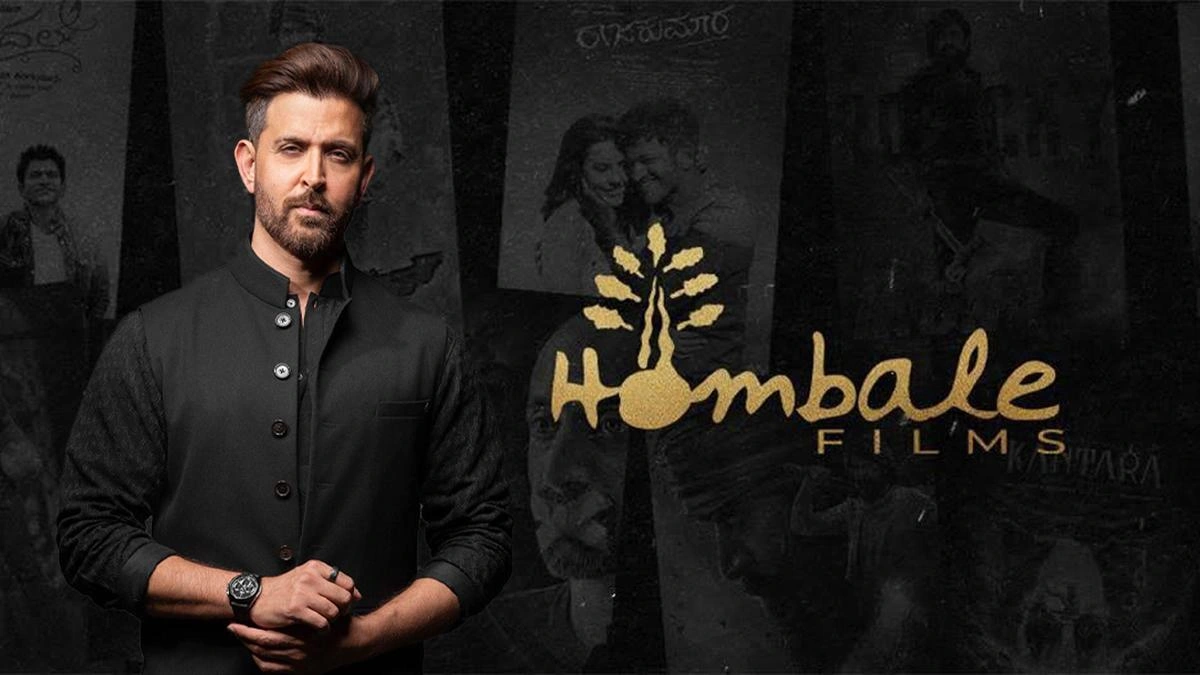Captain Vijayakanth | The Unfinished Story of the Action Hero Who Almost Redefined Tamil Politics
Let’s be honest. When we talk about Tamil superstars turning to politics, it’s a well-trodden path. We think of MGR’s cinematic charisma translating into an unshakeable political legacy. We think of Jayalalithaa, his protégée, who ruled with an iron fist. But then there was Captain Vijayakanth . And his story is different. It’s messier, more human, and in many ways, far more fascinating.
His passing wasn’t just the loss of another actor. It felt like the closing of a very specific, very powerful chapter in Tamil Nadu’s recent history. A chapter filled with hope, disruption, and a poignant sense of ‘what if’. To understand his impact, you can’t just look at his filmography or his party’s vote share. You have to understand why he mattered so deeply to so many. He wasn’t just an action hero; for a brief, electrifying moment, he was the man who made the two Dravidian giants nervous. And that, right there, is the real story.
The Making of ‘Captain’ | More Than Just an Angry Young Man
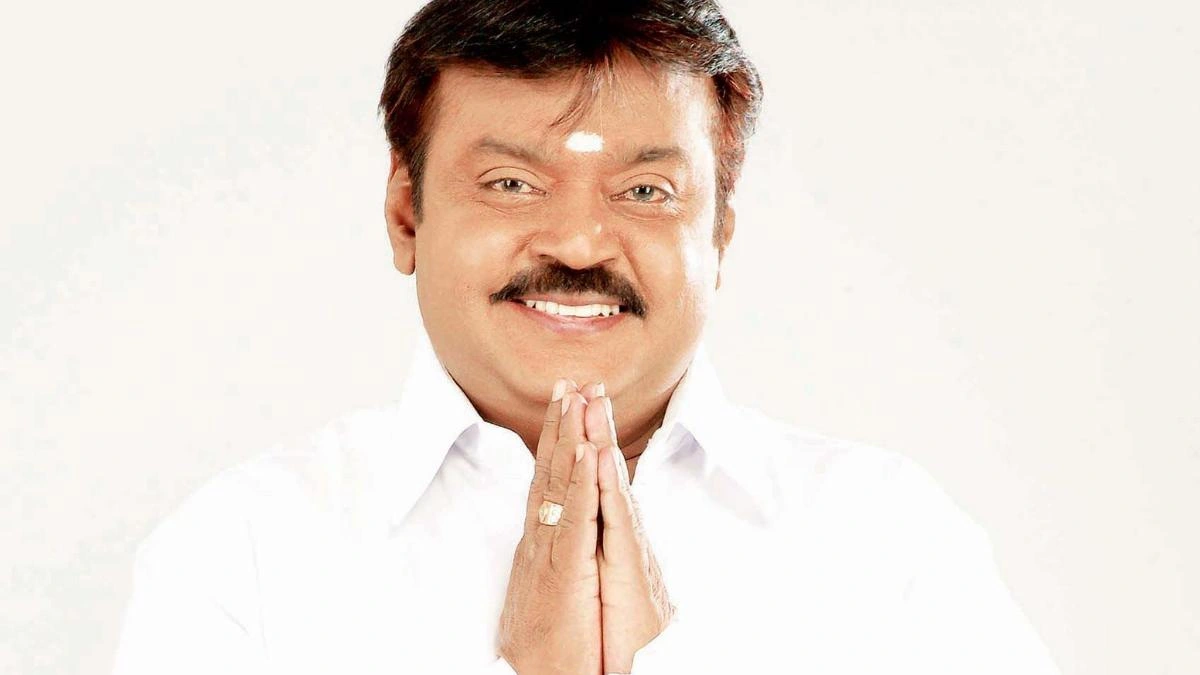
Before the white veshti and the political rallies, there was the man on the 70mm screen. And he was unlike anyone else. In an industry that often glorified fair skin, Vijayakanth, a dark-skinned man with an imposing presence, broke the mould. He wasn’t the romantic hero wooing a girl in the Swiss Alps. He was the gruff, honest, and often furious police officer, military man, or villager fighting for justice.
What truly fascinates me is how his on-screen persona was a masterclass in branding, long before that became a corporate buzzword. Think about it. His characters were almost always extensions of a single, powerful archetype: the incorruptible patriot. The man who would lay down his life for the country, for his state, for his village. This wasn’t subtle. In films like Captain Prabhakaran (which earned him his lifelong moniker), he was the tough-as-nails IFS officer hunting a notorious smuggler. It was this film that cemented his identity as ‘Captain of Tamil cinema’ .
But it wasn’t just patriotism. His characters spoke a language that resonated with the common man. They were angry about corruption. They were frustrated with the system. They took matters into their own hands. In a way, watching a Vijayakanth movie was cathartic. He was saying and doing what many wished they could. He became the vessel for a collective public frustration, and this foundation was absolutely crucial for what came next.
The Political Gamble | Why the DMDK’s Rise Was an Earthquake
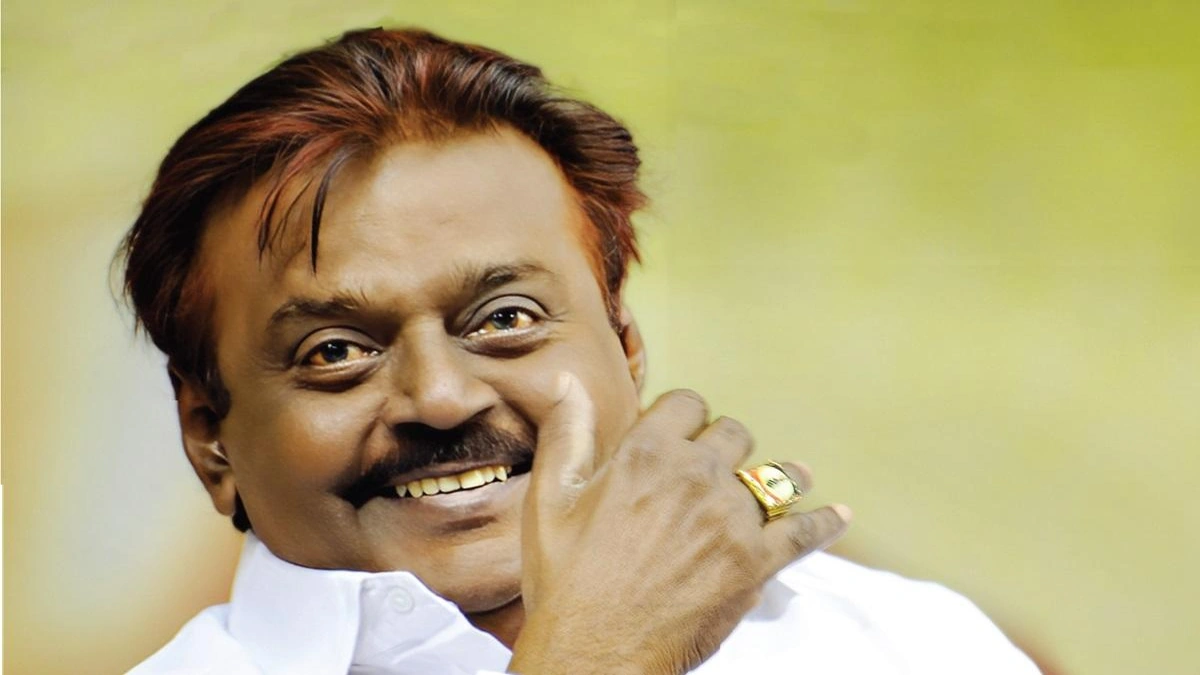
Now, let’s talk politics. For decades, Tamil Nadu politics has been a two-horse race. You’re either with the DMK or the AIADMK. It’s a deeply entrenched system, a duopoly built on ideology, personality cults, and formidable party machinery. Many have tried to create a ‘third front’, and almost all have failed spectacularly.
And then, in 2005, Captain launched the Desiya Murpokku Dravida Kazhagam (DMDK). The initial reaction from political elites was dismissive. Another actor trying his luck. But they missed something vital. Vijayakanth wasn’t just another actor; he was Captain. He was carrying decades of on-screen goodwill and a carefully cultivated image of being an outsider, a fighter for the people.
The 2006 assembly election was the first real test. The DMDK, contesting alone, pulled off a stunning feat. While Vijayakanth was the only one to win his seat, the party secured a jaw-dropping 8.4% of the total vote share. Let me rephrase that for clarity: a brand new party, with no alliances, got nearly one-tenth of all votes cast. In a state where elections are won and lost on wafer-thin margins, this was a political earthquake. He played spoiler in dozens of constituencies, proving he was a force to be reckoned with. People weren’t just voting for an actor; they were voting for an alternative. He gave a voice to the politically disenchanted. You can learn a lot about the nuances of regional politics by seeing how figures like him emerge, something detailed in pieces about Dravidian parties .
His peak came in 2011. By aligning with the AIADMK, the DMDK won 29 seats and Vijayakanth became the Leader of the Opposition, a post that had always been held by either the DMK or the AIADMK. He had officially broken the duopoly. The man who played the angry hero on screen was now staring down the Chief Minister in the state assembly. It was a surreal moment, the culmination of a decade of carefully building a persona. It’s a fascinating look at how personal branding can have massive real-world impact, much like you might see in a completely different field, like analyzing why Taylor Swift is not just a pop star .
The Generosity That Became Legend
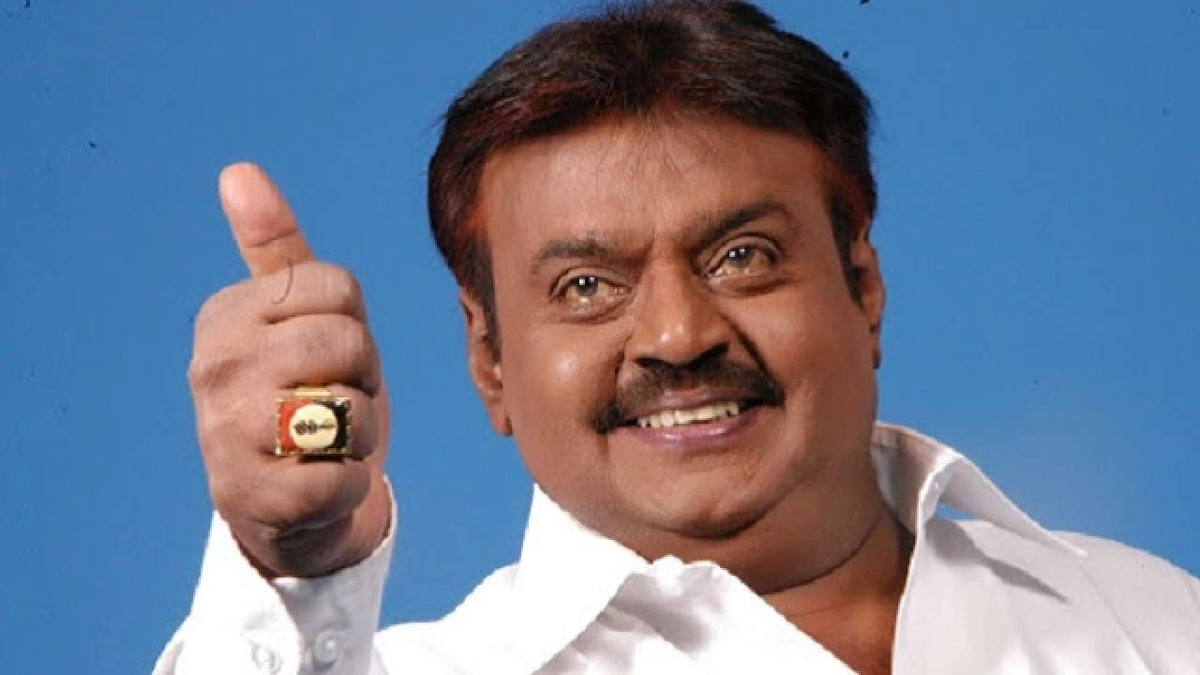
Here’s the thing that separated Vijayakanth from so many others. His compassion wasn’t just for the cameras. The stories of his generosity are legendary in the Tamil film industry and beyond. Long before he entered politics, he was known for ensuring that everyone on his film set, from the director to the light boy, ate the same high-quality food he did. It sounds small, but in a hierarchical industry, it was a revolutionary act of equality.
He was instrumental in clearing the massive debts of the Nadigar Sangam (South Indian Artistes’ Association), even using his personal property as collateral. He regularly organised functions to help poor and struggling junior artists. These weren’t PR stunts; this was his default mode. When the 2004 Tsunami hit, he was on the ground distributing relief materials. This real-life persona of a protector and provider merged seamlessly with his on-screen image.
So when he asked for votes, people believed him. They had seen his actions for years. They felt he wasn’t in it for power or money, but because he genuinely cared. This immense wellspring of public goodwill is something that political strategists can only dream of manufacturing. It was authentic, earned over decades, and it was the true source of his political power.
The Decline and the Unforgettable Legacy
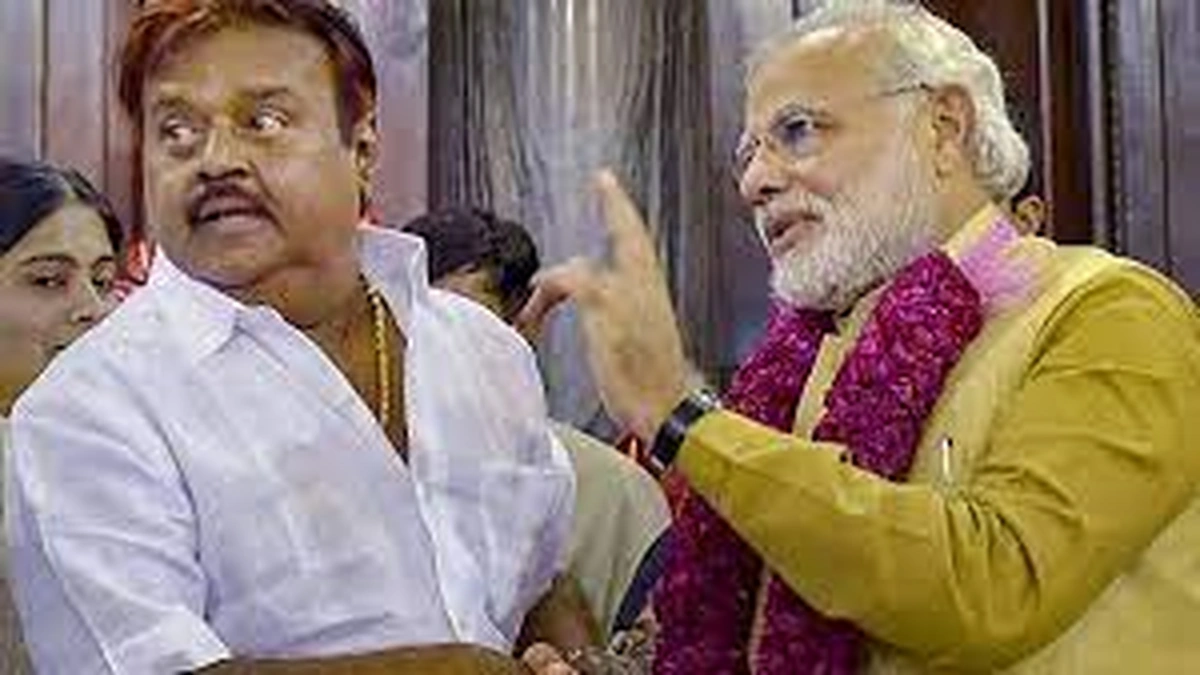
The fall was as swift as the rise was meteoric. A combination of questionable political alliances, a public speaking style that became fodder for memes, and, most tragically, his deteriorating health led to the decline of the DMDK. The man whose fiery speeches once captivated crowds began to struggle, and the party that was once the kingmaker faded from relevance.
But his political failure doesn’t erase his impact. Captain Vijayakanth’s legacy isn’t about the number of seats his party holds today. It’s about the fact that he showed it was possible to challenge the status quo. He created a space for dissent and proved that a third voice could, even for a moment, be heard loud and clear. He forced the two major parties to take notice of a huge chunk of the electorate they had taken for granted.
In the end, Captain’s story is a classic Tamil tragedy. A hero rises against all odds, reaches for the sun, and is brought back down to earth. But his journey serves as a powerful reminder. A reminder that in the often cynical world of politics, a reputation for kindness and a genuine connection with the people can build a bond that even electoral defeats cannot entirely break. His political party might be a shadow of its former self, but the name ‘Captain’ will forever echo as the man who was brave enough to try. It makes you think about how we should plan for the future, not just in politics, but in life, perhaps even finding a way to unlock a perfect long weekend to reflect on it all.
Captain Vijayakanth | Frequently Asked Questions
Why was Vijayakanth called ‘Captain’?
He earned the nickname ‘Captain’ after his 100th film, “Captain Prabhakaran” (1991), in which he played a powerful and patriotic forest officer. The title stuck with him throughout his career in both cinema and politics, becoming synonymous with his public persona.
What was the name of Captain Vijayakanth’s political party?
Captain Vijayakanth founded his political party in 2005. It is called the Desiya Murpokku Dravida Kazhagam, commonly known as the DMDK .
What was his biggest political achievement?
His most significant political achievement was in the 2011 Tamil Nadu Assembly elections. His party, the DMDK, in alliance with the AIADMK, won 29 seats, and Vijayakanth became the official Leader of the Opposition, breaking the decades-long dominance of the DMK and AIADMK in that role.
Was Vijayakanth known for his charity work?
Yes, immensely so. He was famous for his philanthropy long before entering politics. He was known for providing food for everyone on his film sets, clearing the debts of the Nadigar Sangam (actors’ union), and consistently helping the poor and needy, which built him enormous public goodwill.
What led to the decline of the DMDK?
The decline of the DMDK is attributed to a combination of factors, including some strategic miscalculations in forming alliances, inconsistent political stands, and most significantly, Captain Vijayakanth’s deteriorating health in his later years, which limited his public appearances and leadership activities.
